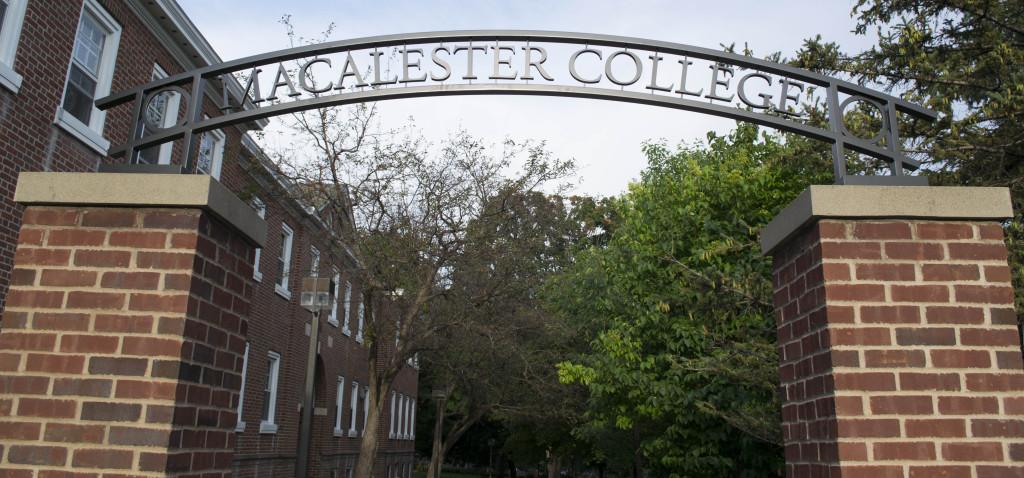Academic departments publish statements in the aftermath of George Floyd’s killing
July 23, 2020
On Thursday, June 4, Macalester’s religious studies department was the first to release a statement to its majors, minors and faculty after four Minneapolis Police Department (MPD) officers killed George Floyd.
The statement demonstrated the department’s support for the protests in Minneapolis and St. Paul. It also spoke of the generational trauma police have inflicted on Black communities.
“Minnesota’s racial disparities are among the very worst in USA, across nearly all categories. None of this is new, or unknown to those now feigning surprise in our political leadership,” the statement read. “The brutal behavior of the police reflects the tacit approval of the state and elites.”
The statement ended with a call for Macalester to take action.
“Macalester college […] is neither innocent nor without responsibility,” it read.
The statement challenged other Macalester academic departments to “support the protests, and commit to challenging white supremacy and the violent forces of the police in our communities and in our everyday lives.”
In an email to The Mac Weekly, Chair of the religious studies department William Hart said he believes the campus community should hold the college accountable.
“Everyone should work where they are,” Hart wrote. “Work to make sure that Macalester’s practices fully reflect a commitment to racial justice. Integrate racial justice into pedagogy and subject matter. Work with community organizations that have racial justice as their mission.”
While the statement did not directly address racial inequity in religious studies classrooms, Hart expressed his confidence in the religious studies department’s current practices and its continued improvement.
“Racial equity is constitutive of what we do,” Hart wrote. “However, there is always more that can be done. I am sure that we will inventory our practices and see how we can do things better.”
Following the statement from religious studies, other departments reached out to their students with similar messages of advocacy and plans for the future.
Macalester’s history department made a unique proposal. In their email addressed to “Macalester Historians,” the department pledged to donate to two organizations: Rondo Avenue, Incorporated, a non-profit devoted to sustaining the Rondo Community in St. Paul, and MIGIZI, a Minneapolis group dedicated to sharing the stories of Indigenous peoples in the media and uplifting youth from Indigenous communities.
“[These organizations] have a connection to historic injustice around race and also address our intersections with our own work in the community,” history and classics department coordinator Herta Pitman said.
Other academic departments were pointedly self-reflective in their statements addressing Black Lives Matter and the legacy of George Floyd. In an email to its students, Macalester’s political science department noted their discipline’s role in the history of racial inequity in higher education and academia.
“As a discipline, political science has been remarkably inattentive to the ways in which race has always been a central component of politics and power in and outside of the United States,” the statement read.
Chair of the political science department Paul Dosh said that throughout his career, he has witnessed the political science discipline acting as an “‘ivory tower” with the goal of “knowledge for the sake of knowledge, rather than as committed to public intellectual work that was trying to have an impact on society.”
“Macalester’s political science department is part of that national terrain,” Dosh said.
Racial underrepresentation among the political science educators is a key piece of this problem.
“The biggest glaring deficiency of our political science department is that we’re mostly white and at certain intervals in the last 20 years have sometimes been an all white department,” Dosh said.
While the department has sought to address this issue previously, Dosh said that he believes the calls for action against racial injustice that have emerged since George Floyd’s killing will motivate the political science department to change the racial representation among faculty.
This summer, the political science department has been holding meetings focused on addressing issues of systemic racism. Dosh said their agenda includes reassessing their recruitment and hiring process and deepening dialogues with campus groups like BLM at Macalester.
The economics department also discussed their discipline’s legacy of lack of diversity and discrimination in an email to its students.
“The economics community, in general, must do better to rid the profession of the discrimination and racism many members of the profession experience regularly,” the department wrote.
The statement included a series of goals for the future of their department, such as their commitment to changing curriculum to adequately address the intersectionality of race and economic opportunity and pursuing greater diversity among its student and faculty community.
Professor and chair of the economics department Sarah West says that she is currently working to establish a system of anonymous feedback in the department, so that students and alumni can weigh in on how to support economics students and better the department climate.
“Faculty engage with each other regularly about making economics a welcoming place for all, and as chair, I am having one-on-one discussions with economics faculty to ensure our department and curriculum are inclusive, welcoming, and empowering to all,” West wrote in an email to The Mac Weekly.
Macalester’s physics and astronomy department was similarly prompted by the religious studies department to reach out to its student community.
Their statement offered support to physics and astronomy students, condemned the killing of George Floyd and advocated for police reform.
“It is more important than ever for us to come together as a community, to listen and to learn from one another, so that we can all work to dismantle white supremacy’s stronghold on our society,” the statement said.
Assistant professor of physics and astronomy Anna Williams recognized how her discipline plays a role in racial underrepresentation and inequality in STEM. While the physics and astronomy department hopes to bring change by implementing future social justice focused courses, such as those around ‘decolonizing’ physics, she sees the lack of diversity among the department’s student body as a critical issue.
“It’s really hard to recruit people to a field where they can’t see themselves in it,” Williams said.
However, Williams said she is grateful for the role students play in bringing these conversations forward.
“I’ve got a lot of respect for the student community that we have — they help to initiate a conversation about how inclusive our department is to students,” she said. “It’s definitely helping to prompt more conversation between faculty about ways of diversifying the scientists that we talk about in the classroom in order to make sure that everyone can see themselves represented somehow.”
Williams is optimistic that the ongoing conversation about representation will help create positive change within the department.
“The students at Macalester are very active and very vocal and very interested in helping our department be the best it can be,” she said. “In addition to these conversations that the faculty have been having, getting more student involvement — that will make a difference as well.”














